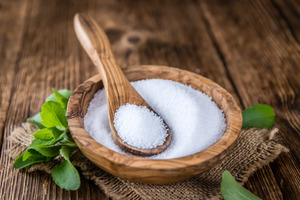
Most people are well aware of the negative effects that sugar can have on health, and particularly on the teeth. This is part of why sugar substitutes and diet sodas are so incredibly popular, with companies trying to create tastier and healthier sweeteners.
People conscious of their oral health may also wonder whether artificial sweeteners could help them improve their oral health. If you’re interested in using sugar substitutes to prevent the effects of sugar on your teeth, here are a few things that you should probably know.
Do Sugar Substitutes Contribute to Tooth Decay?
Sugar contributes to tooth decay when it’s consumed by bacteria in the mouth, bacteria that secrete acids as waste. Artificial sweeteners don’t feed bacteria in the same way, and therefore do not contribute to any kind of tooth decay.
Moreover, a study conducted by the International Journal of Basic & Clinical Pharmacology found that many of the most popular sugar substitutes may actually raise the pH in the mouth, making it less hospitable for decay-causing bacteria.
The Dangers of Diet Soda
While a bit of stevia or sucrose could potentially be a good choice for your teeth, you still have to carefully consider whether sugar is the only aspect of the food you’re eating that could be hurting your teeth. Diet soda is an excellent example.
While the absurd amount of sugar in soda is obviously a large part of why they contribute to tooth decay, it’s not the only culprit. Soda is also incredibly acidic by its very nature, which means that it can still wear down the enamel and cause bacteria in the mouth to build up.
The same goes for other drinks that could potentially cause problems for your teeth. For example, if you put artificial sweetener in your coffee or tea that might prevent them from causing cavities; however, they’re still just as likely to stain your teeth if you drink them to excess.
As promising as artificial sweeteners can be, you should still be sure not to assume they’re a cure-all for you oral health problems and think carefully about what else goes into your diet.
About the Author
Dr. Deidra Harrison-McClain initially began her career as a dental assistant before, through hard work and dedication to her field, she became a full-fledged dentist. While her clinical knowledge has expanded significantly since then, her compassion and attentiveness to her patients hasn’t waned in the slightest. Dr. McClain received her degree from Meharry Medical College in Nashville, where she graduated at the top of her class.
If you have any questions about how to adopt a tooth-healthy diet, we can be reached at our website or by phone at (615) 819-1644.
